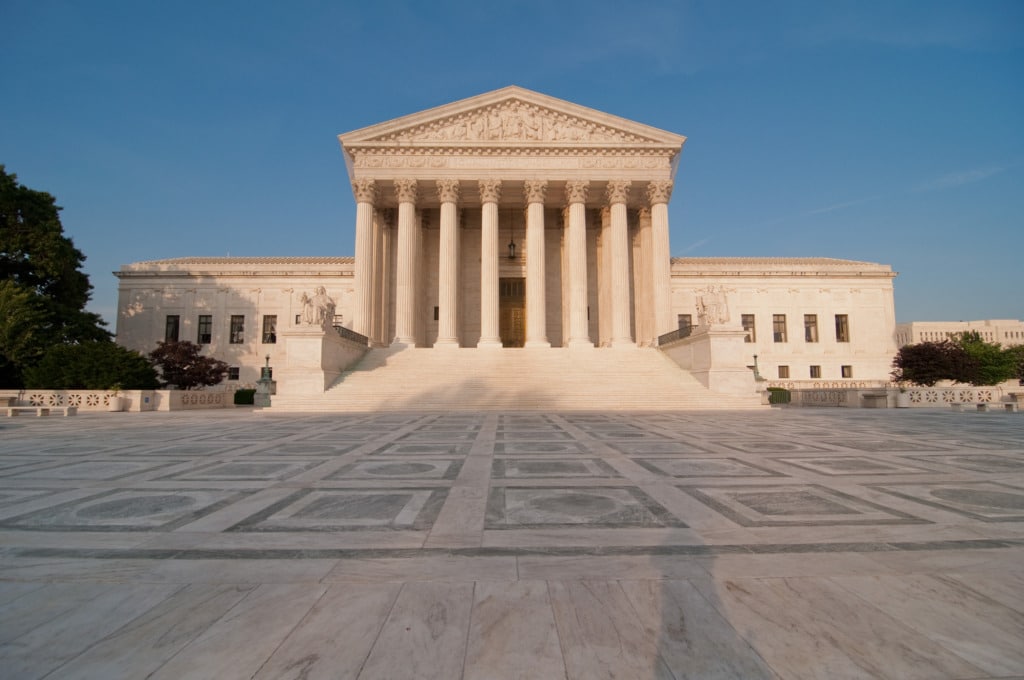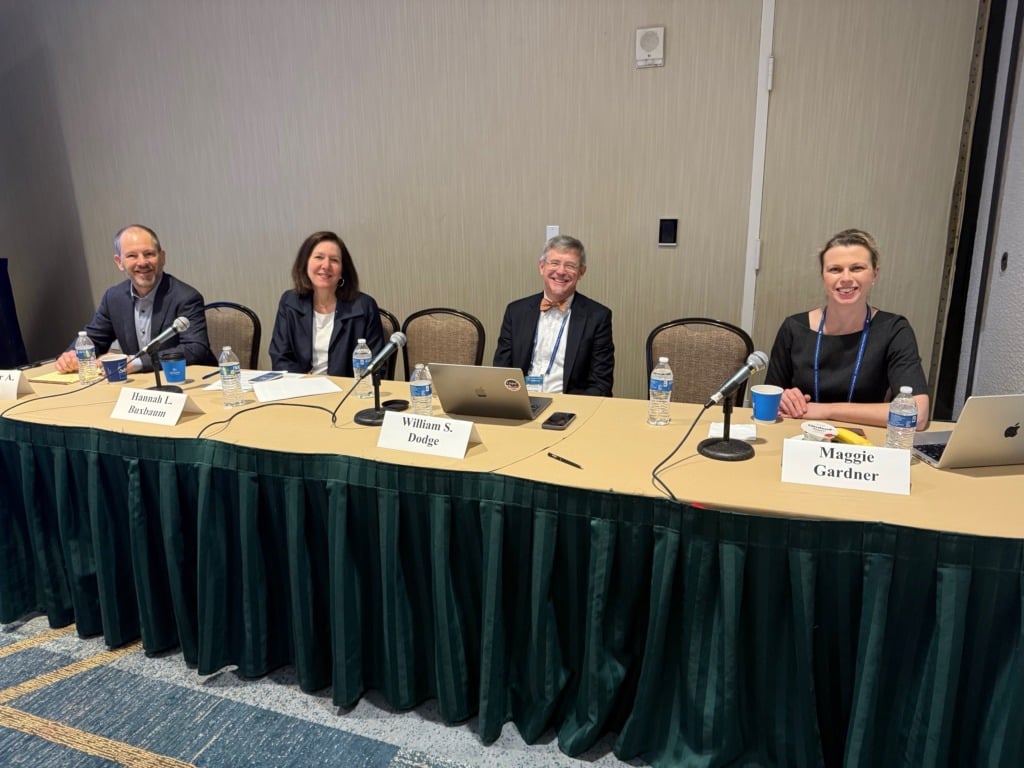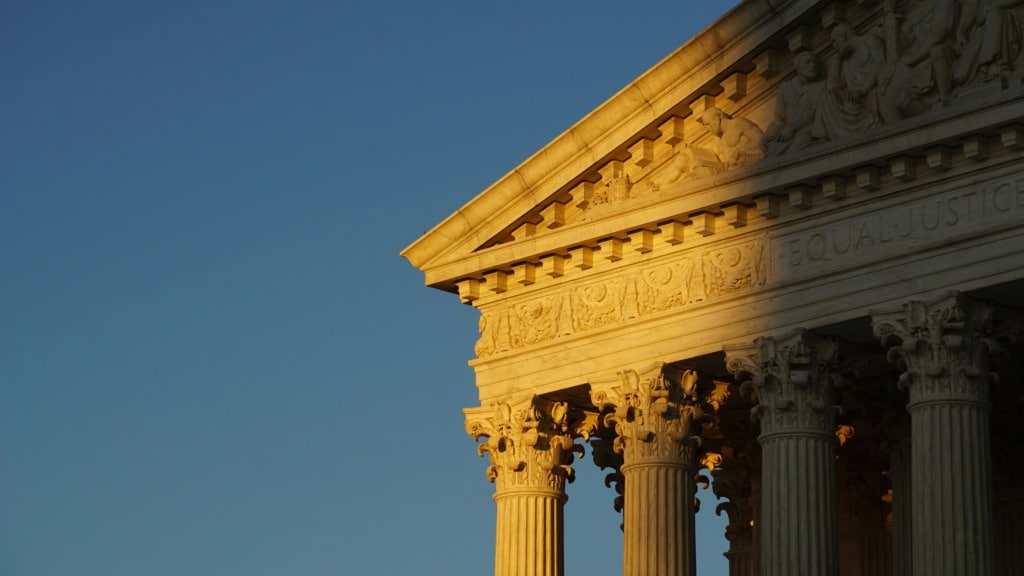Argument Preview: Engbridge Energy, LP v. Nessel
The Supreme Court will hear oral argument this morning in Enbridge Energy, LP v. Nessel, a case involving Michigan’s effort to end an easement across the Straits of Mackinac for an oil and natural gas pipeline between the Midwest and Canada. As Bill has covered previously for TLB, this is one in a series of…
Continue Reading“Waiving” the Hague Service Convention
Complying with the Hague Service Convention (HSC) is admittedly not always easy, quick, or even feasible. Not surprisingly, then, parties may want to work around the HSC through contractual language. John Coyle, Robin Effron, and I have previously explained how private parties can—and cannot—contract around the HSC. Unfortunately, the District of New Jersey (Judge Julian…
Continue ReadingExtraterritoriality in Flux
Earlier this month, at the annual meeting of the Association of American Law Schools, TLB Editors Maggie Gardner, Bill Dodge, and Hannah Buxbaum participated in a panel organized by the Section on Conflicts of Law entitled “Extraterritoriality in Flux.” This post summarizes their remarks. Maggie Gardner: It’s Time to Look Beyond the Presumption Against Extraterritoriality…
Continue ReadingMaduro’s Capture Was Not a Legal “Law Enforcement Operation”
The international legal implications regarding the U.S. capture of Venezuelan president Nicolás Maduro are profound. I want to clarify just one misconception that appears to be growing in importance. The Trump Administration has downplayed the military aspects of the operation by asserting that the U.S. military was simply aiding a law enforcement effort to serve…
Continue ReadingHappy New Year!
TLB will be on break until January 6, 2026. We wish you all the best in the new year!
Continue ReadingSDNY Grapples with Fuld
In Fuld v. Palestine Liberation Organization, as we have previously covered, the Supreme Court held that the due process limits on personal jurisdiction under the Fifth Amendment differ from those of the Fourteenth Amendment. But the Court did not spell out what the personal jurisdiction analysis should be under the Fifth Amendment, other than stating…
Continue ReadingNew Essay on the Future of Fuld v. PLO
I have expanded on my prior TLB posts on Fuld v. PLO, including a series of posts I wrote last summer critiquing the originalist case for unlimited personal jurisdiction under the Fifth Amendment, in a new essay that is forthcoming in the Yale Law Journal Forum and is now available on SSRN. In this new…
Continue ReadingNinth Circuit Reverses Personal Jurisdiction Decision in Lufthansa Case
Last year, I expressed doubt over the Northern District of California’s dismissal for lack of personal jurisdiction of a suit brought by California residents regarding their alleged mistreatment when checking in for their Lufthansa flight in Saudi Arabia. The Ninth Circuit recently reversed that decision in Doe v. Deutsche Lufthansa Aktiengesellschaft, holding that that the…
Continue ReadingA Helpful Decision on Serving Defendants in China
We have covered extensively on TLB the challenge of serving defendants located in China in accordance with Federal Rule of Civil Procedure 4 and U.S. treaty obligations under the Hague Service Convention. In a recent decision, the District of Massachusetts (Judge F. Dennis Saylor IV) provided a thoughtful analysis of these issues—citing along the way…
Continue ReadingScholarship Critical of “Schedule A” Cases
A growing chorus of scholarly concern about “Schedule A” cases appears to be catching the attention of some district courts. In a “Schedule A” case, a holder of U.S. intellectual property rights will sue a large collection of defendants, often online merchants based outside of the United States, which it will list in a “Schedule…
Continue Reading







